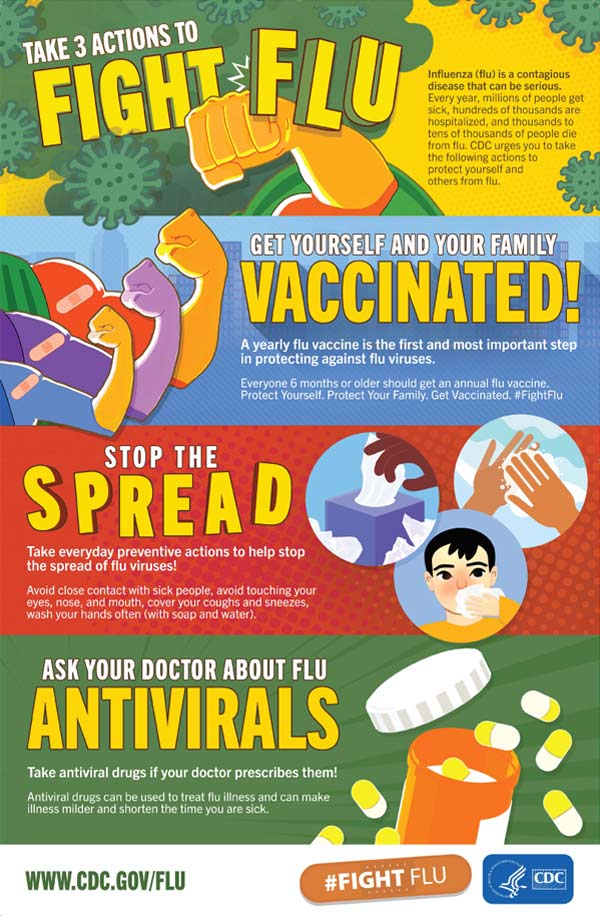It’s Flu Season – Protect Yourself
Take time to get your flu shot.
What you should know:
- CDC recommends a yearly flu vaccine as the first and most important step in protecting against flu viruses.
- Flu vaccines help to reduce the burden of flu illnesses, hospitalizations and deaths on the health care system each year. (Read more about flu vaccine benefits.)
- This season, all flu vaccines will be designed to protect against the four flu viruses that research indicates will be most common. (Visit Vaccine Virus Selection for this season’s vaccine composition.)
- Everyone 6 months and older should get an annual flu vaccine, ideally by the end of October. Learn more about vaccine timing.
- Vaccination of people at higher risk of developing serious flu complications is especially important to decrease their risk of severe flu illness.
- People at higher risk of serious flu complications include young children, pregnant people, people with certain chronic health conditions like asthma, diabetes or heart and lung disease, and people 65 years and older.
- Vaccination also is important for health care workers, and other people who live with or care for people at higher risk to keep from spreading flu to them. This is especially true for people who work in long-term care facilities, which are home to many of the people most vulnerable to flu.
- Children younger than 6 months are at higher risk of serious flu illness but are too young to be vaccinated. People who care for infants should be vaccinated instead.

What is Influenza (Flu)?
Flu is a contagious respiratory illness caused by influenza viruses that infect the nose, throat, and sometimes the lungs. It can cause mild to severe illness, and at times can lead to death. The best way to prevent flu is by getting a flu vaccine each year.
Flu Symptoms
Influenza (flu) can cause mild to severe illness, and at times can lead to death. Flu symptoms usually come on suddenly. People who have flu often feel some or all of these symptoms:
- fever* or feeling
- feverish/chills
- cough
- sore throat
- runny or stuffy nose
- muscle or body aches
- headaches
- fatigue (tiredness)
- some people may have
- vomiting and diarrhea,
- though this is more
- common in children than adults.
*It’s important to note that not everyone with flu will have a fever.


